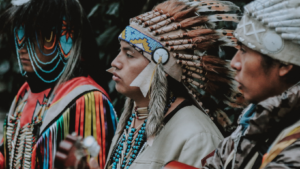Exploring local Aboriginal cultural heritage services offers a unique opportunity to connect with the rich tapestry of indigenous history and traditions. These services play a crucial role in preserving and promoting the diverse cultures of Aboriginal communities, ensuring their stories and practices are shared with future generations. By engaging with these services, individuals can gain a deeper understanding of the land’s original custodians and their enduring connection to it.
In recent years, there’s been a growing recognition of the importance of these cultural heritage services. They not only safeguard traditional knowledge but also foster cultural exchange and mutual respect. As more people seek authentic experiences and a greater appreciation of indigenous contributions, these services have become invaluable resources. Whether through guided tours, educational programs, or community events, local Aboriginal cultural heritage services invite everyone to celebrate and honor the vibrant legacy of the first peoples.
Local Aboriginal Cultural Heritage Services

Local Aboriginal cultural heritage services encompasses traditions, customs, and historical sites integral to indigenous communities. These elements tell the story of the original custodians of the land, providing insights into their ways of life and spiritual beliefs. Recognizing this heritage is crucial in appreciating the depth and diversity of Aboriginal cultures.
Laws and regulations protect many Aboriginal cultural sites to ensure their preservation for future generations. Policies often require consultation with local Aboriginal communities before any development projects proceed on culturally significant lands. This involvement underscores the importance of maintaining cultural integrity and respecting traditional ownership.
Importance of Cultural Heritage Services
local aboriginal cultural heritage services play a crucial role in preserving indigenous traditions and fostering understanding. Through these services, communities can connect with their historical roots and enrich cultural continuity.
Preservation of Traditions
Local Aboriginal cultural heritage services ensure traditions pass down through generations. They help maintain languages through workshops, document oral histories for archiving, and support the revival of traditional arts like weaving. These services engage community members in cultural activities deemed essential for retaining unique practices. By protecting sacred sites and endorsing customary ceremonies, they uphold the spiritual essence of Aboriginal heritage.
Education and Awareness
Education and awareness are central to cultural heritage services. Schools collaborate with indigenous leaders to develop accurate curricula. Programs like guided heritage tours and cultural workshops are organized to engage broader audiences. Museums and cultural hubs host interactive exhibits, providing visitors firsthand experiences with Aboriginal culture. These educational initiatives enhance public knowledge, promoting respect and appreciation for Aboriginal traditions and encouraging cultural exchange.
Key Services Offered

Local aboriginal cultural heritage services provide a range of crucial offerings that preserve indigenous history and foster cultural connection. These services empower communities through effective management of historical sites and comprehensive educational programs.
Historical Site Management
Effective management of historical sites ensures the protection and preservation of vital cultural landmarks. Local heritage services oversee the maintenance and conservation of these sites, prioritizing their historical and cultural significance. They collaborate with Aboriginal leaders to conduct assessments and develop strategies that safeguard these areas from damage or neglect. By engaging Aboriginal communities, these services create management plans that respect traditional values and practices.
Cultural Education Programs
Cultural education programs enhance understanding and respect for Aboriginal traditions. These programs deliver authentic educational experiences through partnerships with schools and community organizations. They incorporate indigenous history and traditions into school curricula, empowering students with knowledge of Aboriginal heritage. Workshops, interactive seminars, and storytelling sessions engage participants in learning, ensuring the accurate representation of indigenous cultures. By fostering cultural awareness, these programs bridge gaps in understanding and promote appreciation for the rich legacy of Aboriginal communities.
Challenges Faced by Service Providers

Local Aboriginal cultural heritage services encounter several challenges while safeguarding traditions and promoting cultural knowledge. Ensuring optimal support is crucial for effective service delivery amidst these obstacles.
Securing sufficient funding and resources presents a significant challenge for service providers. Many programs rely on government grants and donations, competing for limited funding against other cultural initiatives. Inconsistent financial support hinders long-term planning and project sustainability. Access to essential resources, such as facilities, materials, and skilled personnel, is often constrained, affecting the quality and reach of services.



